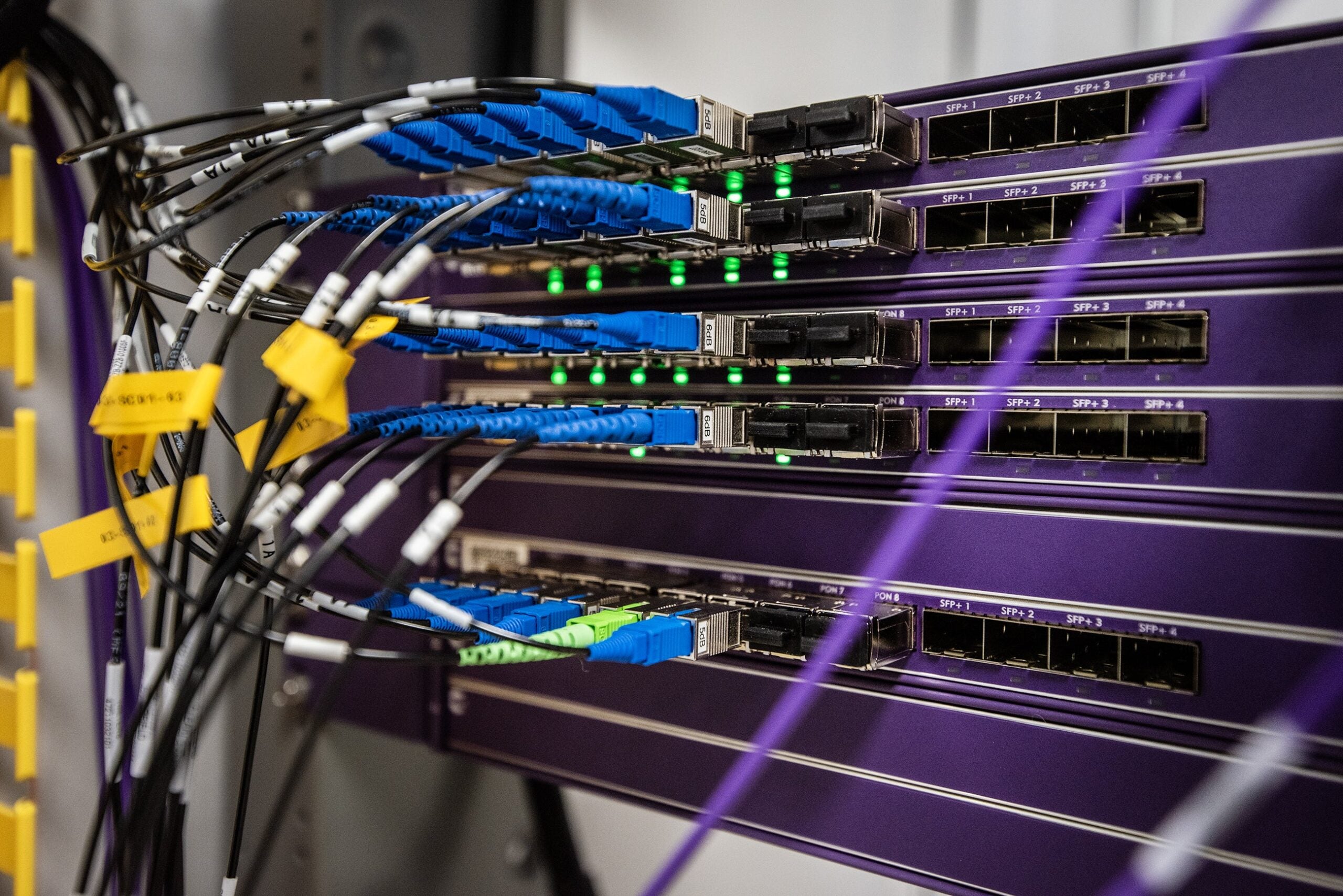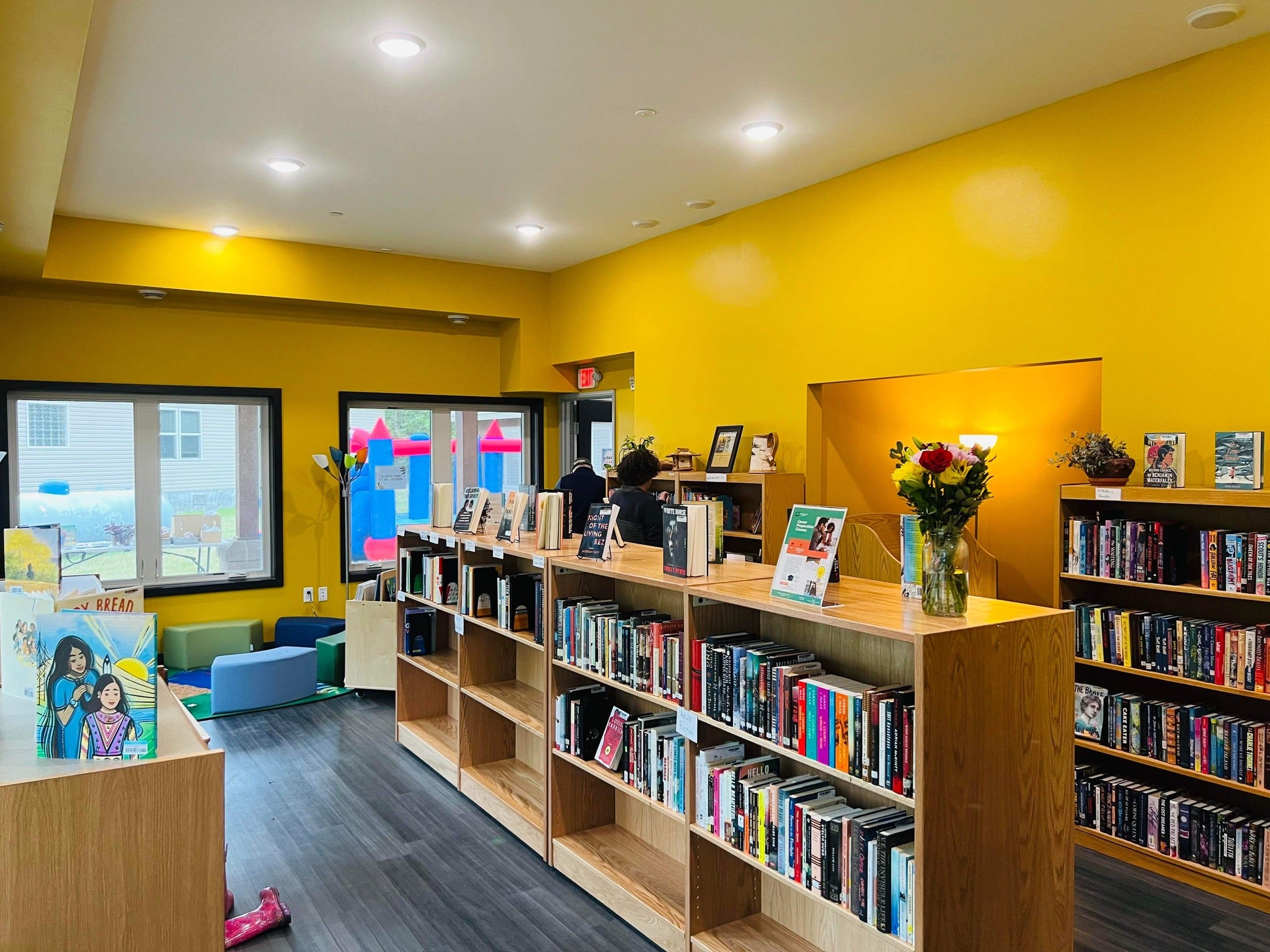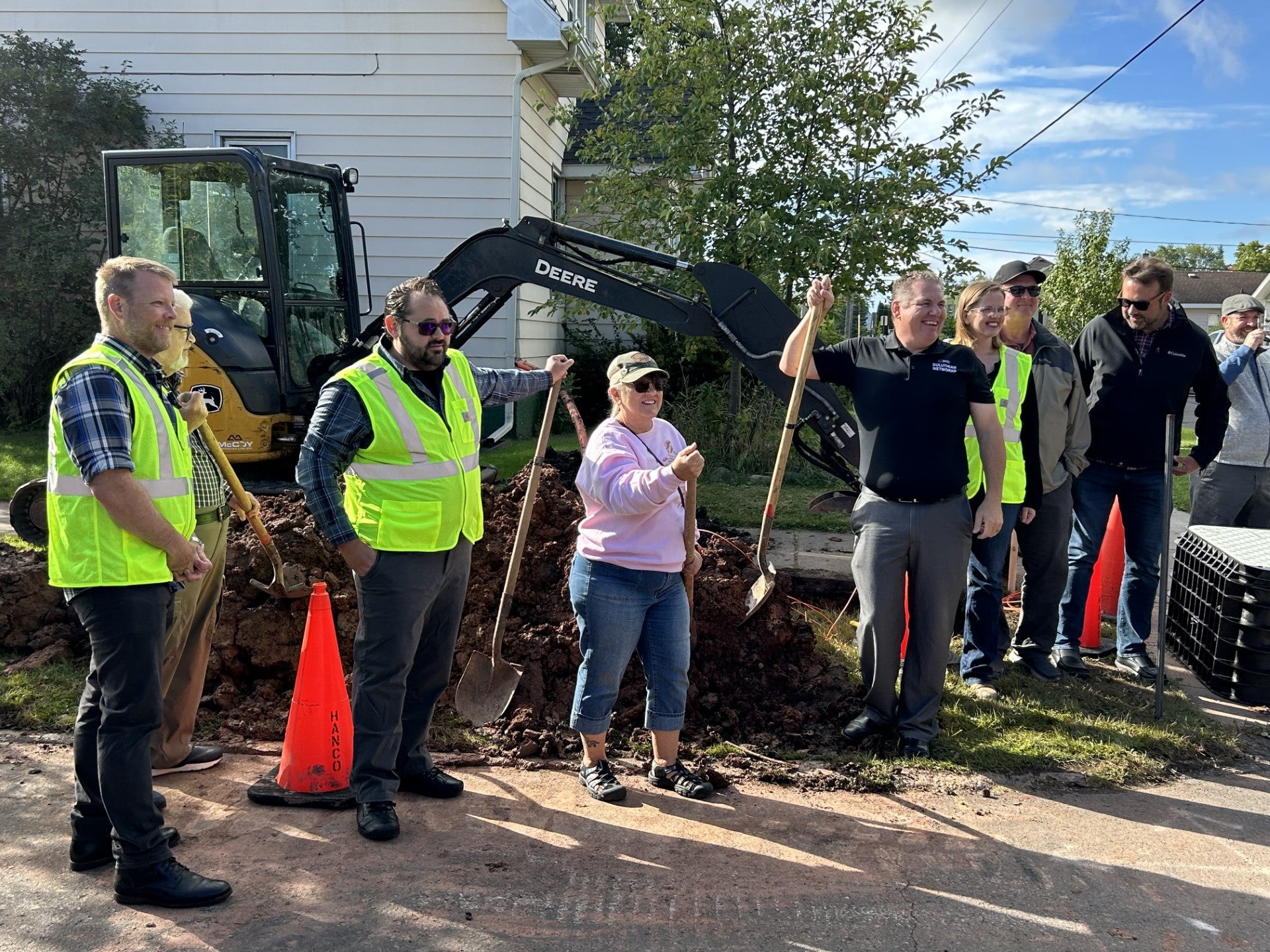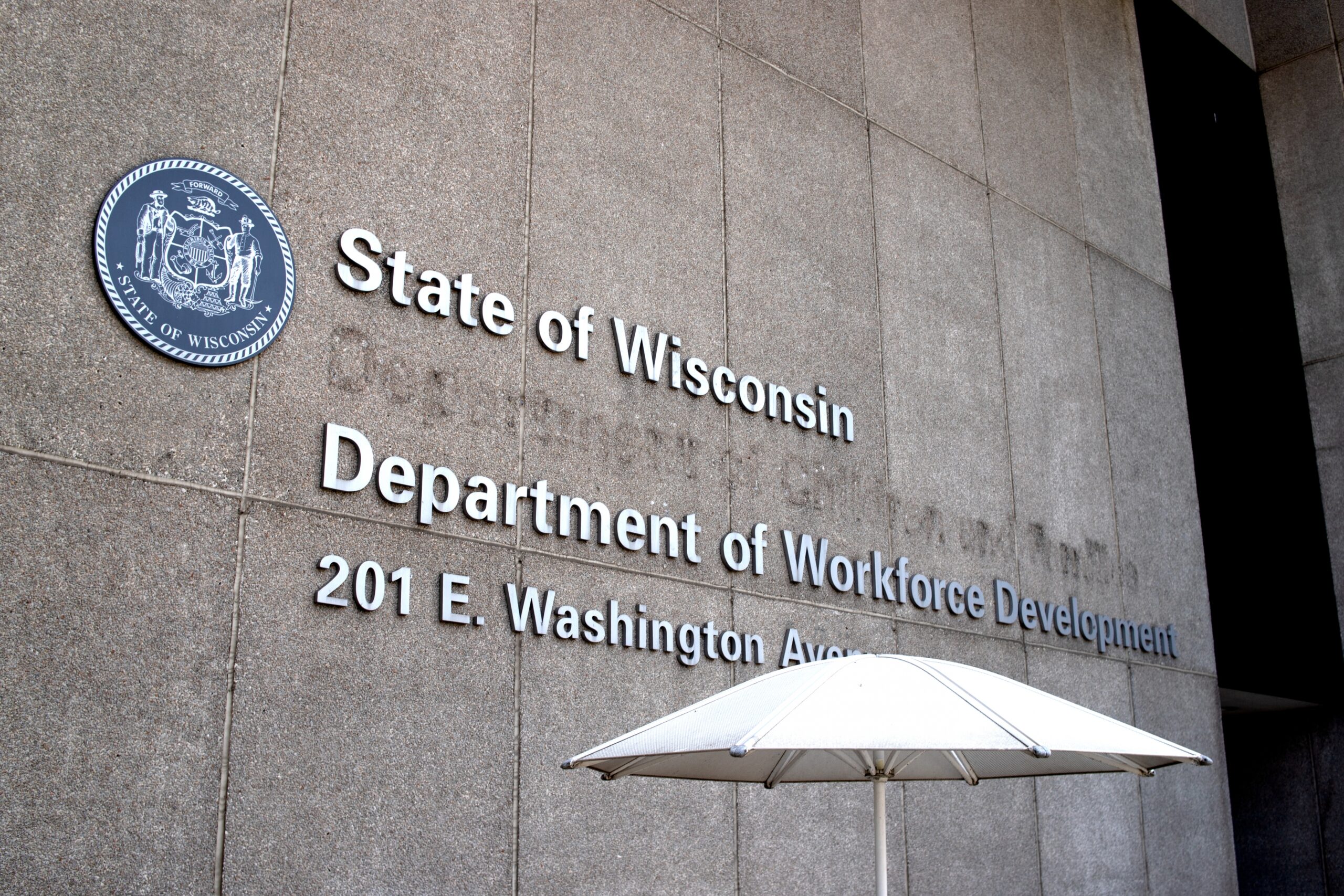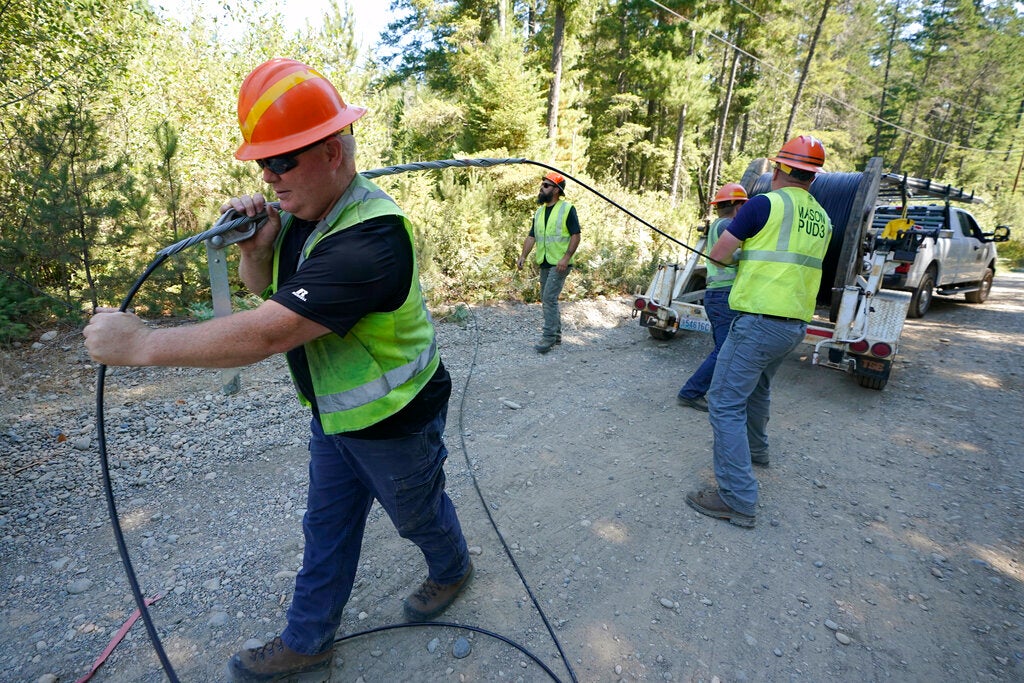Demand for broadband expansion grant funding in Wisconsin is far outstripping the cash available in the program, according to the Public Service Commission of Wisconsin.
The state received 125 applications for $221.6 million for the Broadband Infrastructure Grant program, five times the $42 million the state has available for grants, according to Gov. Tony Evers’ office. That’s the highest ratio of requested funding to available funding for any broadband grant round since 2014.
“Clearly, the need far outweighs the resources available, and we must keep making meaningful state investments to prioritize and invest in the robust broadband infrastructure needed to meet our state’s 21st-century needs,” Evers said in a statement.
News with a little more humanity
WPR’s “Wisconsin Today” newsletter keeps you connected to the state you love without feeling overwhelmed. No paywall. No agenda. No corporate filter.
The Legislature rejected Evers’ $750 million request to expand broadband in Wisconsin this summer as they crafted the state budget. Republicans on the Joint Finance Committee cited an influx of federal funding for the effort, and said service providers were already at capacity, according to the Wisconsin State Journal.
The Broadband Infrastructure grants, funded by the federal American Rescue Plan Act, are aimed at providing high-speed internet to areas lacking access, according to the governor’s office. The Public Service Commission, or PSC, is expected to announce award recipients by spring 2024.
According to a PSC document, the program prioritizes funding for communities that were disproportionately affected by the COVID-19 pandemic due to a lack of broadband.
Alyssa Kenney, broadband and digital equity director at the PSC, said the pandemic highlighted that high-speed internet access is essential for families. She said there were instances where families had to drive to a McDonald’s parking lot for their children to attend school virtually because they didn’t have access to quality internet at home.
“Almost anyone without broadband had sort of a more profound impact from the pandemic,” she said. “These dollars are really more targeted to communities and locations that were more impacted by the pandemic, or are more susceptible if there’s another pandemic to be overly impacted.”
One of the things the PSC will be looking at when grading applications is whether an application is coming from a community that had higher unemployment rates during the pandemic, and slower economic recoveries afterward, Kenney said.
“It could go to any unserved community or underserved location,” she said. “But when the commission reviews it, they’ll be giving some emphasis and some additional points to those more vulnerable and higher-impacted communities.”
While applications had to be submitted by last week, the period to submit objections to applications runs until Nov. 30 and the period to respond to those objections ends on Dec. 14.
Kenney said the objection period is aimed at identifying applications for areas already served by high-speed internet or where a project is underway to provide it.
“Most of the objections are around making sure that we’re really putting the funding to those eligible unserved (or) underserved locations,” she said. “Some people might just have ideas about the best use of public dollars, and they could object under those grounds.”
One organization seeking funding is Villa St. Francis, a Milwaukee assisted living facility with 75 percent of its residents on Medicaid.
Villa St. Francis CEO Rod Humpal said the home’s current Wi-Fi system will no longer be supported by its service provider starting in January, and the facility’s application asked for funds to upgrade the system.
The organization’s application said the project costs $31,330. The facility requested $25,064 from the PSC and plans to fund the remaining $6,266.
Humpal said the Wi-Fi system not only provides internet access to the home’s residents, but it’s also used to operate the nurse call system.
“When a resident hits their pendant to receive care, it goes through our system to identify on the computer and through a mobile device on the floor that our resident needs assistance,” he said.
But he also acknowledged the application may not qualify for funding as it’s not expanding broadband access to an underserved part of the state.
“I’m hopeful, but I know that we’re kind of on the edge for what the program’s primary goal is,” he said.
Kenney with the PSC said Wisconsin has made progress in expanding access to high-speed internet in recent years, investing over $345 million in state and federal dollars. She also said the PSC is currently preparing to offer another round of grants with $1 billion the state is receiving for broadband expansion from the federal Bipartisan Infrastructure Law.
“Those dollars will be administered through the commission starting in 2024,” Kenney said. “Those are also for really pushing the state from better and better, to really close to universal services.”
Wisconsin Public Radio, © Copyright 2026, Board of Regents of the University of Wisconsin System and Wisconsin Educational Communications Board.

